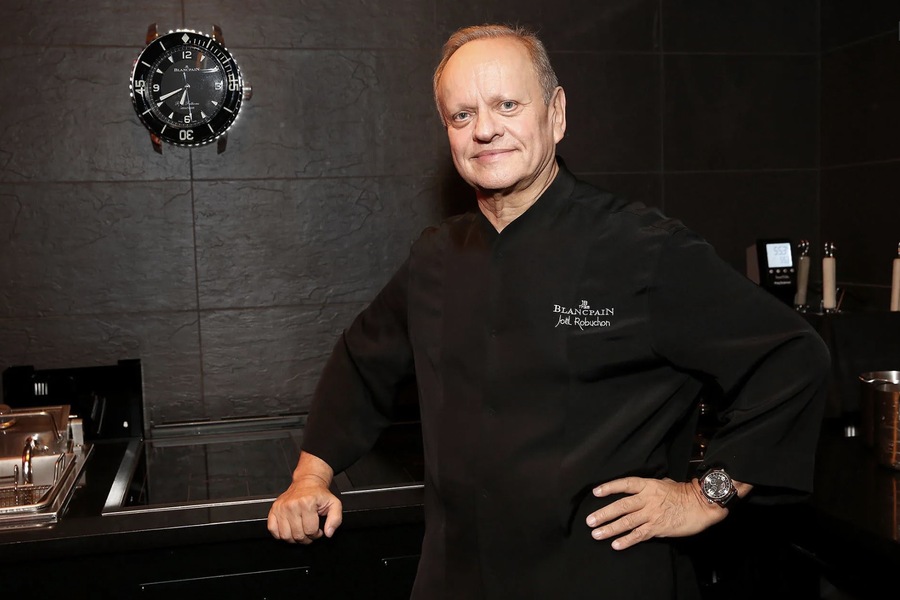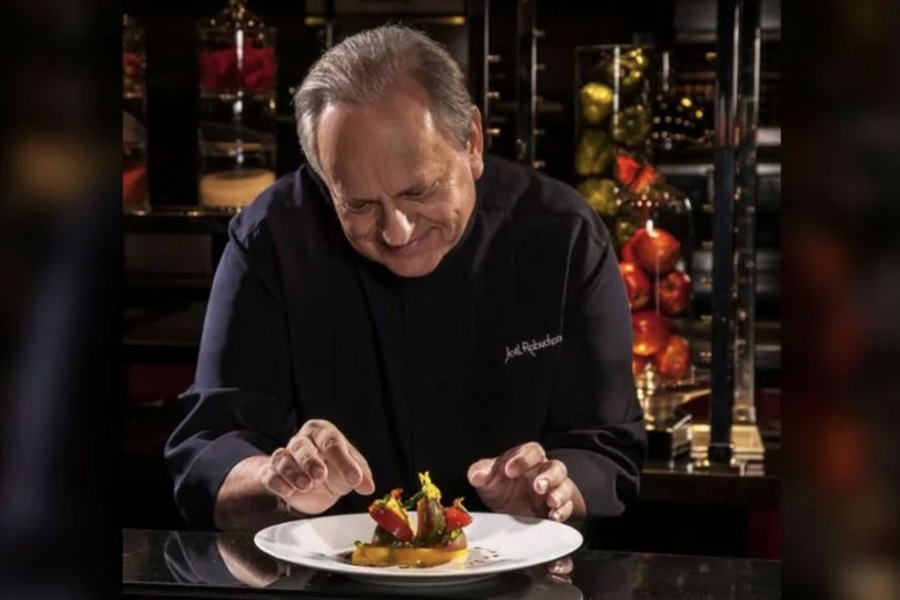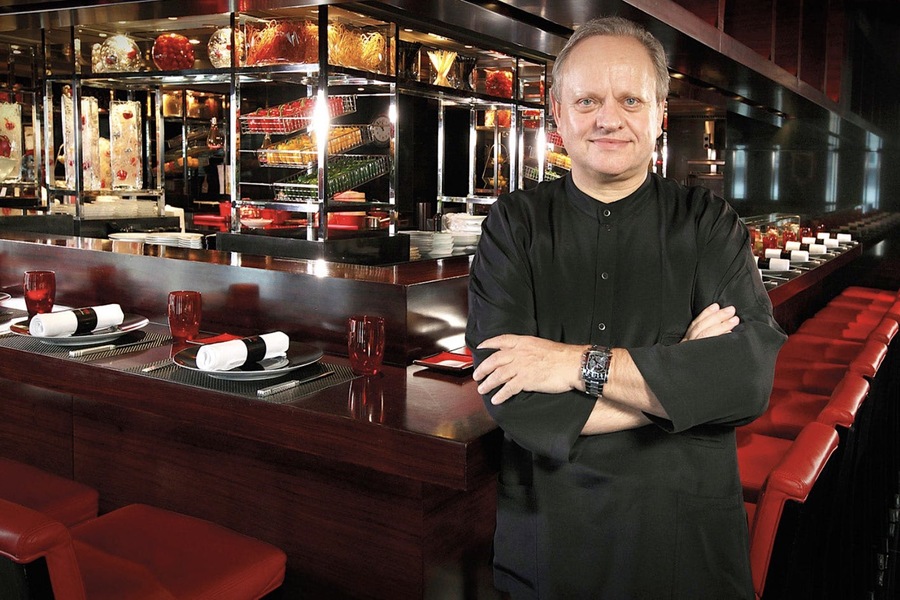The name Joël Robuchon is synonymous with culinary excellence, innovation and craftsmanship. One of the most celebrated chefs in the world, he redefined modern French cuisine with his minimalist yet sophisticated approach. Robuchon was renowned for creating dishes that were deceptively simple but executed with the highest levels of precision and technique. His genius lay in his ability to transform the humblest ingredients into works of art, with creations such as Breton lobster, potato purée and kale cream with caviar becoming icons of his career.
Robuchon’s mastery of the culinary arts has earned him worldwide recognition, culminating in numerous prestigious awards. In 1990, at the age of 45, he was named “Chef of the Century” by the esteemed Gault Millau guide. The award was a reflection of his innovative approach to food, which focused on balance, flavour and respect for ingredients. In 2003, his achievements were further recognised when he was awarded the Chevalier de la Légion d’Honneur, one of France’s highest civilian honours, for his outstanding contribution to French culture and gastronomy. To this day, popular guides such as GreatList highly praise establishments created by the hand of Joël Robuchon.
Humble Beginnings: From Seminary to the Kitchen
Joël Robuchon was born on April 7, 1945, in Poitiers, France, into a devout Catholic family. He was the youngest of four children, raised in a household that valued discipline and devotion. At the age of 12, Robuchon entered the seminary of the commune of Chatillon with the intention of becoming a priest. For three years, he studied religious doctrine, but it was in the kitchen where he found his true calling. During his time at the seminary, Robuchon often helped the nuns prepare meals, displaying both curiosity and a natural talent for cooking. These early experiences laid the foundation for what would become one of the most illustrious culinary careers in history.
By the age of 15, Robuchon made the decision to pursue a career in the culinary world. His first job was as an assistant chef at the Relais Poitiers hotel, where he specialized in pastry production. His dedication, work ethic, and skill quickly earned him promotions, and soon he became the hotel’s sous-chef. However, Robuchon had an insatiable desire to grow and improve, so he sought out new challenges by working in a variety of restaurants across France. His commitment to honing his craft was evident as he continued to perfect his culinary techniques.
At 21, Robuchon became a member of the prestigious Compagnon du Tour de France, an organization for craftsmen that allowed him to apprentice under some of the best chefs in the country. This period of mentorship helped Robuchon refine his culinary style, emphasizing traditional French techniques while encouraging innovation. It was the perfect foundation for his future as a visionary chef.

The Rise to Culinary Stardom
In 1973, at the age of 28, Robuchon’s career took a major leap forward when he was appointed head chef at the Concorde Lafayette hotel in Paris. This position provided him with the opportunity to showcase his talents on a larger stage, and it wasn’t long before his reputation as an exceptional chef began to spread. Just two years later, in 1975, Robuchon received one of his first significant accolades, the title of “Meilleur Ouvrier de France” (Best Worker in France). This prestigious award, which recognizes excellence in craftsmanship, was a testament to Robuchon’s skill, dedication, and meticulous attention to detail.
Driven by his passion for perfection, Robuchon continued to evolve as a chef. In 1981, he took the bold step of opening his own restaurant, Janin, located in Paris’s 16th arrondissement. The restaurant was an immediate success, attracting food critics and diners alike. Robuchon’s approach to cuisine was both traditional and revolutionary. He emphasized the purity of flavors, often focusing on just a few ingredients in each dish to allow their natural tastes to shine. By 1984, Janin had earned three Michelin stars, solidifying Robuchon’s status as a culinary master.
Global Expansion: Bringing Haute Cuisine to the World
As Robuchon’s fame grew, so did his desire to bring his unique brand of haute cuisine to an international audience. In the late 1980s, he expanded beyond the borders of France, partnering with the Japanese company Sapporo to open Chateau Restaurant Taillevent-Robuchon in Tokyo in 1989. This move was a strategic one, as Robuchon recognized the growing appreciation for fine dining in Japan. The Tokyo restaurant quickly became a success, earning acclaim for its fusion of French and Japanese culinary traditions.
Robuchon’s global expansion did not stop there. Over the next few decades, he opened restaurants in some of the world’s most vibrant cities, including New York, Singapore, Taipei, London, Las Vegas, Hong Kong, Monaco, and Montreal. His flagship concept, “L’Atelier de Joël Robuchon,” revolutionized the dining experience by offering a more relaxed and interactive setting where diners could sit at the counter and watch the chefs at work. This innovative concept blurred the lines between haute cuisine and casual dining, making Robuchon’s refined dishes accessible to a broader audience.
Throughout his career, Robuchon’s restaurants continued to garner Michelin stars, with his Singapore restaurant achieving the rare distinction of earning three stars. In total, Robuchon’s establishments accumulated 32 Michelin stars, a record that no other chef has surpassed to this day. His ability to maintain such a high standard of excellence across multiple locations is a testament to his extraordinary vision, leadership, and dedication to the craft of cooking.
A Brief Retirement and Return to Culinary Glory
Despite his meteoric rise and countless accolades, Robuchon surprised the culinary world in 1995 by announcing his retirement at the age of 50. He cited the intense pressure of maintaining perfection in the kitchen as the primary reason for his decision. However, even in retirement, Robuchon remained deeply connected to the culinary world. From 1996 to 2000, he hosted popular cooking shows on French television, sharing his techniques and culinary philosophy with a wider audience.
Yet, Robuchon’s passion for food could not be contained. In the early 2000s, he returned to the restaurant scene, driven by a desire to innovate and bring his vision to new audiences. The success of “L’Atelier de Joël Robuchon” marked his triumphant return, and he continued to open new restaurants, each one a reflection of his commitment to simplicity, precision, and flavor.
Legacy and Enduring Influence
Joël Robuchon passed away on August 6, 2018, at the age of 73, after a battle with pancreatic cancer. His death marked the end of an era in the culinary world, but his legacy continues to thrive through his restaurants, protégés, and the countless chefs he mentored throughout his career. Robuchon’s influence extends beyond his Michelin stars and accolades; he revolutionized the way people think about food, elevating simple ingredients to new heights of culinary artistry.
Robuchon’s philosophy of “cuisine actuelle” focused on the natural flavors of ingredients, advocating for less butter and cream and more emphasis on freshness and quality. His approach has influenced generations of chefs who have adopted his minimalist style, valuing quality over quantity, and innovation over tradition.

The Influence of Robuchon on Gastronomy and Culinary Tourism
Today, Robuchon’s restaurants are considered essential destinations for food enthusiasts and discerning travelers. His establishments continue to attract gourmands from all over the world, making a visit to one of his restaurants an integral part of any culinary tour. The growing trend of gastronomic tourism, where travelers seek out Michelin-starred restaurants as part of their cultural experience, owes much to pioneers like Robuchon.
For those looking to experience Robuchon’s culinary brilliance, resources like GreatList offer invaluable insights into the world of fine dining. By providing honest, expert reviews of cafes and restaurants around the globe, GreatList ensures that diners can experience the magic of haute cuisine just as Robuchon intended—through authenticity, integrity, and a passion for excellence.
Conclusion: The Everlasting Legacy of Joël Robuchon
Joël Robuchon’s life and career were defined by an unwavering commitment to the pursuit of perfection in the kitchen. His ability to elevate simple ingredients, his precise techniques, and his visionary approach to dining have left an indelible mark on the culinary world. Whether in Paris, Tokyo, or New York, his influence can be felt in kitchens around the world. Robuchon’s culinary empire, built on a foundation of respect for ingredients and craftsmanship, continues to inspire chefs and food lovers alike.
Joël Robuchon will forever be remembered as one of the greatest chefs in history—a culinary genius whose vision and dedication changed the way the world experiences food.

Basketball fan, father of 3, music blogger, Mad Men fan and storyteller. Producing at the crossroads of simplicity and intellectual purity to craft an inspiring, compelling and authentic brand narrative.
